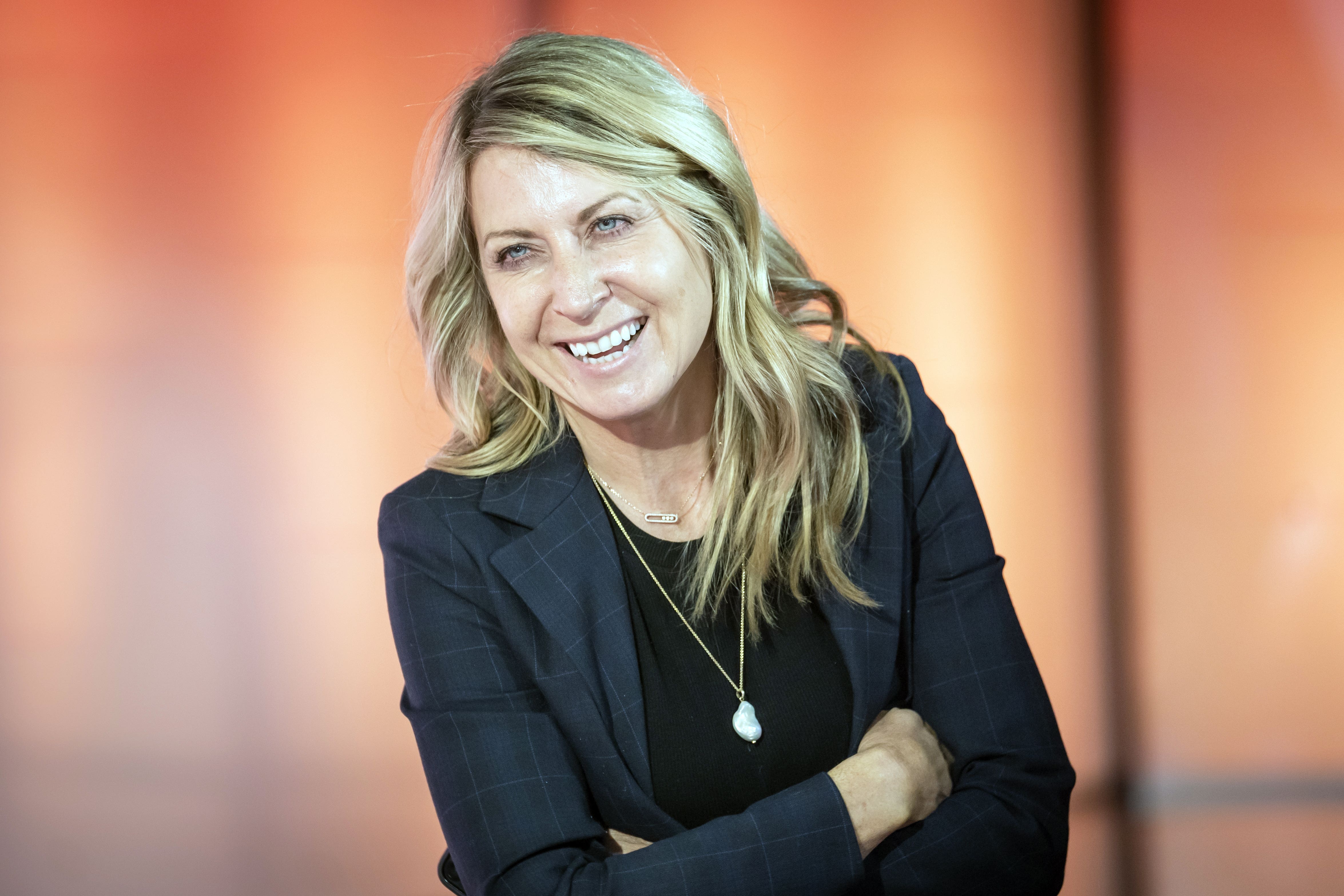Disinformation and dishonesty ‘has created the need for pure impartiality’
Deborah Turness reflected on the role of impartiality within news outlets alongside GB News and Sky bosses at the Royal Television Society conference.

The chief executive of BBC News and Current Affairs has said “the disinformation and dishonesty” in society has created the need for “pure impartiality” within news organisations.
Deborah Turness reflected on the role of impartiality within news outlets alongside GB News chief executive Angelos Frangopoulos and Sky News UK’s managing director and executive editor Jonathan Levy during a panel discussion at the Royal Television Society Cambridge Conference on Thursday.
Ms Turness said she feels the media watchdog Ofcom needs to provide “clarity” for the public between outlets who follow its code of conduct and those that do not.
The noise, the chaos, the disinformation and the dishonesty out there creates the need for the pure impartiality but I think Ofcom's champion opportunity is to create clarity between those that do apply the code and those that do not.
She said: “News organisations, we have great power and with great power comes great responsibility.
“And I think the question for Ofcom is, is there going to be a clarity created between the organisations that dedicate themselves to deliver on the impartiality code that is laid down and those that do not?”
She continued: “And I think that clarity for the consumer, with the noise and chaos, it’s really, really difficult out there for our news consumers. They’re having a really rough time knowing who to trust, it’s worse in the US market.
“I’m proud to be working for an organisation that I know consumers feel they can trust, but we’ve got to be working even harder to earn that trust because it’s getting more and more difficult and they’re more and more sceptical.
“The noise, the chaos, the disinformation and the dishonesty out there creates the need for the pure impartiality but I think Ofcom’s champion opportunity is to create clarity between those that do apply the code and those that do not.”
During the discussion, Mr Frangopoulos also argued that an interview with the Chancellor by two fellow Conservative MPs which Ofcom recently found breached impartiality rules was an “innovative” approach.
A pre-recorded interview with Jeremy Hunt by former pensions minister Esther McVey and backbencher Philip Davies was broadcast on their Saturday morning show in March, prompting 45 complaints.
Earlier this week, the media watchdog said GB News should have “taken additional steps to ensure that due impartiality was preserved” and found that “the programme was overwhelmingly reflective of the viewpoints of different strands of opinion within the Conservative Party”.
Speaking on the ruling, Mr Frangopoulos said: “We’re clearly disappointed by the decision by Ofcom. We chose to be regulated and we take the regulation seriously and we work closely with Ofcom as we work through each one of their cases that they bring before us.
“But the reality is that we set out to disrupt. We set out to do things differently because we’re not creating content for this room, or for other journalists, we’re creating content for the United Kingdom.
“We’re actually addressing what I think is a really significant market failure. And the reality is, and it’s a difficult truth for people to take on board, is the fact that people in the United Kingdom want a service like GB News.”
Addressing the interview with Mr Hunt and the married couple of Ms McVey and Mr Davies, Mr Frangopoulos added: “Ultimately we’re here to serve the viewers and that interview itself was actually really innovative.
“It was a very different way of approaching the interview. You had a centrist chancellor being interviewed by two MPs from another wing, another path of the party. And after that we did actually have opposing views including from viewers.”
He also said he feels the term “due” in relation to impartiality is “opaque”, adding: “This is not about equal time, it’s what is the right amount of opposing debate, discussion that ticks the box.”
Asked if they would have a politician as a presenter on their news coverage, Ms Turness and Mr Levy both agreed they would not.
Ms Turness explained: “I don’t think that represents BBC values and what we’re here to do.
“And I think if it happens on other platforms, well it’s for Ofcom to decide whether or not that’s okay.
“But where it does happen, I think you have to make sure, if you are governed by a set of code and a set of regulated frameworks, that you are applying scrutiny, that you are holding those others that you might interview to account. Where that’s not happening then clearly there is a problem.”
Subscribe to Independent Premium to bookmark this article
Want to bookmark your favourite articles and stories to read or reference later? Start your Independent Premium subscription today.
